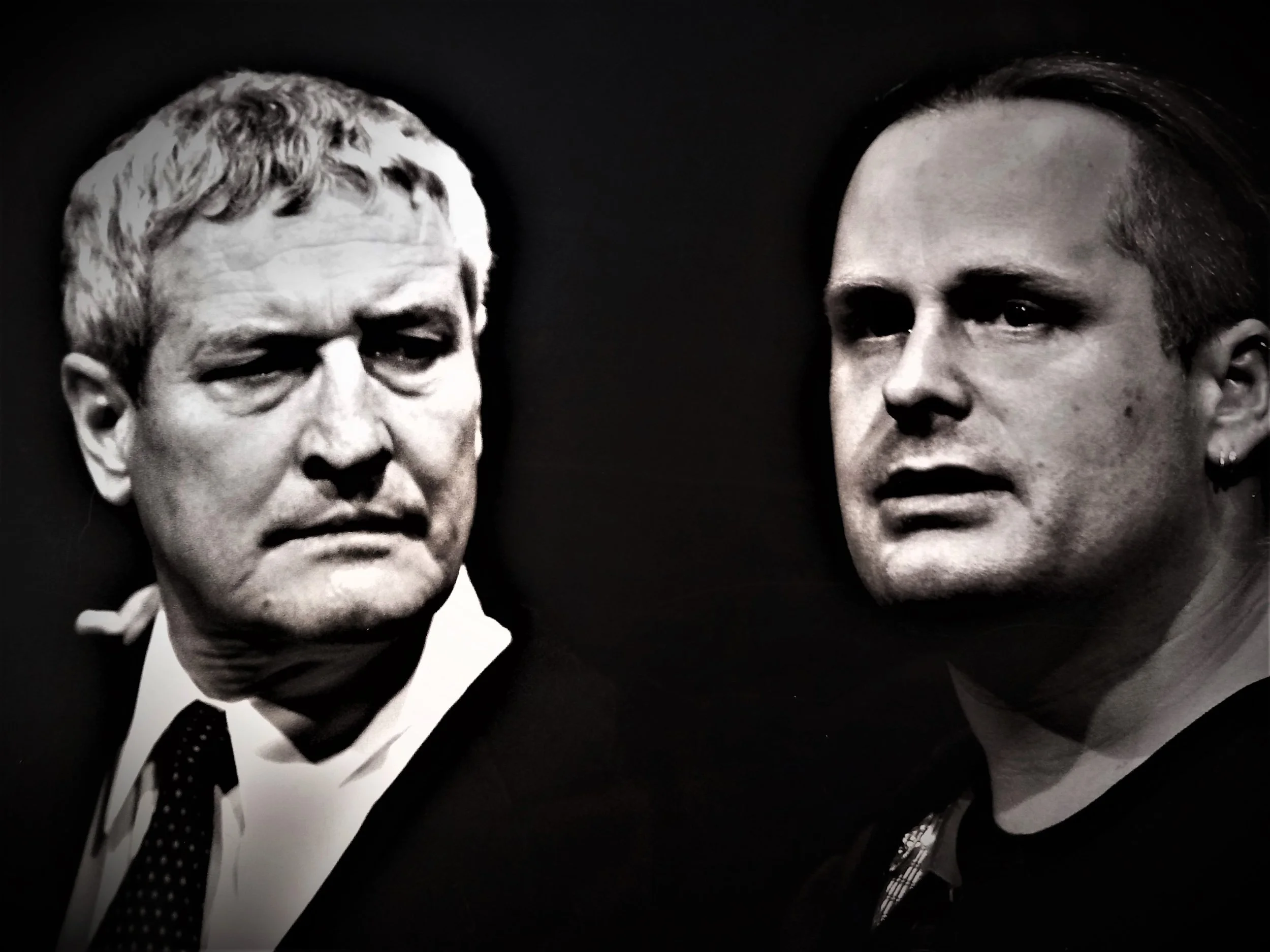When in Rome
CAST: 8 male, 2 female + various supporting roles
SYNOPSIS: A disembodied voice recounts a fable about a colony of frogs suffering the pollution of their environment by a hippopotamus. The gods answer the frogs’ prayers when the hippopotamus dies, only to be replaced by something far worse: a crocodile.
The play proper begins inside Gaius ‘Caligula’ Ceasar’s imperial banqueting hall. Agrippa and Cassius bicker over the implications of Caligula’s failing health as Claudius and Caesonia snipe from the sidelines. The scene turns toward calmer speculation about the possible return of the Roman republic, Agrippa lauding Caligula’s achievements while Claudius and Caligula’s sister, Drusilla, takes a more sober view, recognising their emperor's failings and appetites. When a recovered Caligula appears, he announces a month of celebratory games and the appointment of Claudius as his Senior Consul, much to the surprise of Agrippa. Caligula acknowledges the loyalty of Agrippa’s son, Marcus, who had begged the gods to save the sickly emperor’s life by offering his own in its place. Moved as he is by the gesture, Caligula considers that a promise to the gods should be fulfilled and orders Marcus’s death. After he leaves, Drusilla announces her intention to marry Caligula, scorning Claudius’s advice that such an ‘unnatural’ marriage would tempt fate. The scene ends with more scheming from Claudius and Caesonia.
In the palace’s throne room, Caligula plays high stakes games of life and death with courtiers and other assorted guests, revealing himself to be as cunning as he is cruel. Claudius escapes the scene with his life, though Drusilla is not so lucky, and the play’s first act ends with Caligula exchanging Drusilla for Caesonia.
Act Two returns to the palace, where a conspiratorial Agrippa and Cassius await the return of Caligula from Germanica. Cassius reveals a mysterious letter and suggests that they have Sabinus, a young ambitious centurion, strengthen their burgeoning plot against Caligula, arguing that their duty to Rome requires them to take action against the emperor's atrocities. Their debate is interrupted by Caesonia, now Caligula's wife, and finally Caligula himself, who delivers a triumphant but concerningly forgetful speech. Amidst a growing thunderstorm, Caligula recalls the destruction of a village. He exists, leaving a bitter Caesonia and Cassius to argue with each other about their complicated history and the lingering resentments it has led to.
A pair of intercutting scenes contrast the bourgeoning and lively political conspiracy of Cassius, Sabinus and Agrippa against the ponderous decadence of Caligula and Caesonia’s marriage bed, though both scenes leave their characters resolute.
Another short scene in Claudius’s chambers reveals Agrippa’s intent to betray his fellow conspirators, while Claudius’s loyalties remain unclear.
In the throne room, Caligula publicly accuses Marco and Agrippa of conspiring his murder, ordering their death, though he appears unaware of Cassius's and Sabinus’s roles in the conspiracy, Claudius having kept their secret. Claudius reveals to them an altered version of the plot to murder Caligula and re-instate the Roman Republic. The play’s final scenes achieve Claudius’s ambitions, though not quite as he had led Cassius and Sabinus to believe.
USE THE CONTACT FORM (LINK BELOW) TO REQUEST A COPY OF THE FULL SCRIPT.
“Ley’s fable offer his audience more than sheer entertainment, intertwining plot with poetic wit, biting satire and musing dialectic.”
(Canberra Times)

